John Howard and Peter Costello are right to remind the federal government that we are ‘robbing the future to pay for [the] present’. With Treasurer Jim Chalmers’ warning about Australia’s ageing population setting up the scene for an ‘important announcement’ (which will probably mean the stage 3 tax cuts will be removed and taxes will be increased), the time is ripe for the Coalition to put forward what they do best – reforms. Coinciding the reforms required within the party (as set out in the recent review of the party) with a policy platform based on conservative values will provide a clear distinction between Labor and the government-in-waiting. But that alone will not be enough. What is needed is a grassroots revival of conservative politics in Australia.
The green-Left’s long march through our institutions has been facilitated by conservative voices remaining silent. This is the natural disposition for conservatives, but with the green-Left dominating the echo chamber of contemporary politics, this disposition is not sustainable unless we are happy with politics becoming as one-sided as an ABC Q+A panel. But what is conservatism in the Australian context?
Conservatism in its Hobbesian sense is less about a focus on unthinking ‘tradition’ as per Fiddler on the Roof, and more about having a strong government to ensure a stable and free society. Sir Edmund Burke regarded English liberalism as better than the revolution-to-liberty path taken by the Americans and the French to what the English had already achieved through a strong state, the separation of powers, and the Westminster tradition that was stable enough to make daily life predictable, yet flexible enough to allow governments to govern. Until recently, Australia was such a place, where citizens have rights and responsibilities and individuals are rational beings best able to look after their own welfare (as per John Stuart Mill) while tolerating each other’s divergent views (as per John Locke).
This complex intertwining of conservatism and liberalism is at the heart of the Liberal Party’s ideas. Key differences between conservatives and the rest relate to the proper role of government in the economy and society. Limited government, equality of opportunity in healthcare and education, and policies towards an industry that enable profitable businesses are hallmarks of Australian political life. The conservative vision has always been one of facilitating a prosperous, cohesive, and egalitarian society where individuals are free to pursue their own idea of the good life.
However, former Prime Minister Scott Morrison suggested in the election debate that Labor is the party of visionary government. It was rather sad to hear that the Coalition’s vision under Mr Morrison had been relegated to fixing up Labor’s unfunded policy innovations. Morrison’s admission revealed a key weakness in contemporary conservative politics, one that is neither necessary nor historically the case. An economy that incentivises work, entrepreneurial activity, home ownership, and a comfortable existence have been key to conservative visions past that enabled Australians to flourish.
But in the absence of a conservative vision, the green-Left has been advocating communal living in high-density inner-city housing close to cafes and trams, powered by solar and wind, where people ride electric scooters, eat at vegan restaurants where one chooses what to pay, and generally live their lives with all their household needs outsourced to restaurants and other gig economy service providers. To be sure, there is some demand for such lifestyles, and small businesses can and do flourish in such circumstances, but this is hardly the environment to raise children and it is hardly sustainable as people age and their needs change. Yet much of our investment in infrastructure goes to supporting these lifestyles and subsidising government-mandated technologies while ignoring the regions and the primary and tertiary industries that are the true backbone of our economy.
The appeal of trendy inner-city living was lost during the pandemic lockdowns, with a major exodus from the cities to the regions. Many of my younger colleagues realised that living in a small apartment that was effectively a walk-in wardrobe was a horrid existence when there was nowhere else to go. Suddenly, home ownership became an issue and high-density apartments were revealed as little more than gilded cages.
Home ownership is increasingly a luxury for young people, but it was once a conservative-led vision that was achievable for some 70 per cent of the Australian population. While recent statistics show that overall home ownership rates remain relatively unchanged, the proportion of young people owning homes has dropped markedly. Removing obstacles to home ownership such as stamp duty are key to improving home ownership. Mortgage lending policies that restrict the ability of young people to own their first home might also be mitigated by government guarantees or some other such mechanism. But recent policies by conservative governments that remove stamp duty and replace it with land tax are not consistent with conservative values and avoid the hard work of reform we so desperately need.
Australia’s appetite for economic reform has diminished since the end of the Howard era. The goods and services tax (GST) was a major reform that transformed the Australian economy, but two of the political trade-offs are no longer serving us well. First, when the Democrats’ Meg Lees agreed to support the GST, it was not applied to all goods and services. Yet a consumption tax is the fairest way to raise revenue without disincentivising entrepreneurial activity. Earnings are not taxed as highly therefore consumers can choose to moderate their non-essential consumption rather than having their income taxed automatically beforehand. The doom and gloom that was predicted for the GST never happened. In fact, prices generally were reduced, revenue raised was higher than ever, and people were better off than ever before.
Second, the trade-offs with the states were too restrictive and stamp duty and other state-based revenues were not reduced as originally promised. As a result, removing stamp duty and replacing it with a land tax is antithetical to conservative values – how can you own your own home if you have to keep paying for it to the state government? Tax reform is low-hanging fruit for a conservative vision for Australia’s future prosperity and it will challenge Labor’s tired old higher taxes mantra.
For example, GST should be applied to all goods and services with no exceptions and no compensation, and the rate should be raised, for example, to 15 per cent. All state-based taxes such as stamp duty should be abolished and income tax rates should be adjusted to remove bracket creep and to stimulate the economy. This would (a) remove a major obstacle to home ownership, (b) remove disincentives for additional work and entrepreneurial activity, and (c) fit comfortably with conservative values. It would also go a long way to addressing the cost-of-living increases that are running rampant under Labor.
Comprehensive economic reform would also stimulate investment funding to reduce carbon emissions through nuclear energy. Nuclear would enable existing electricity generation sites to be updated and allow the existing workforces to keep their jobs and the existing transmission infrastructure to continue to be used efficiently. Labor claims nuclear is too expensive while at the same time talking up tax increases to ultimately fund, among other things, the cost overruns of Snowy Hydro 2.0 and the Rewiring the Nation policy. A conservative vision that enables technological neutrality in our energy industry while at the same time providing economic reforms that do not stifle private enterprise has all the advantages and none of the downsides of the green-left’s utopian policies.
Nuclear energy is on the cards for the Dutton-led opposition to provide a realistic alternative to the uncosted and socialist vision of our energy future, but there is more to it than just selling the technology. The green-Left’s renewables future leads inevitably to government control over private households’ energy use. Not enough has been done by conservatives to point out this obvious overreach of government power. Unlike the green-Left’s vision of a command economy, a conservative vision can be implemented with costed and adequately funded policies that achieve our social, environmental, and economic goals without reducing our individual liberties.
Saying you’ll be the same horse with a different jockey is non-policy. Simply doing the opposite of what the government of the day is doing is unoriginal. Sometimes it can be difficult to undo the legacies of past policies and it is prudent to be pragmatic rather than attempt to implement party preferences at all costs (as I have written about previously). But the Coalition’s recent electoral defeat provides an opportunity for renewal and to re-establish the conservative brand. A conservative vision should not be utopian, but it should be realistic, measurable, and demonstrably costed and funded. The same criteria can be used to debate Labor’s goals which, as per the party’s ideology, are proving already to be utopian and ultimately unrealistic.
Mr Albanese’s window of opportunity to blame the former government is now firmly shut. Climate Change Minister Chris Bowen’s swiftly sinking energy policy, the rushed jobs and skills ‘pattern bargaining’ legislation, and the obvious hard-left move to socialise industry and the economy provide a unique opportunity for conservatives to present a compelling alternative vision. This vision does not have to be at odds with the general mood of voters or conservative values. But it does require the support of a grassroots movement to counter the green-Left echo-chamber that dominates the news media, academia, big corporates, and the legal profession.
To be sure, Liberals past have tried to protect free speech and academic freedom, but in the absence of a critical mass of conservative voices in the public sphere, winning the hearts and minds of voters is going to require a concerted and sustained effort. Doing so must stem from political leadership and a willingness to defend conservative values and those conservatives who choose to speak out. This is no mean feat with the green-Left’s cohort of gatekeepers ready to shut down anyone who dares question green-Left orthodoxy.
Meanwhile, the left’s utopian policies are already leading us towards a dystopian reality. Only a grassroots revival of conservative politics will facilitate a compelling alternative vision to enable Australians and their families to truly remain one and free.
Got something to add? Join the discussion and comment below.
Get 10 issues for just $10
Subscribe to The Spectator Australia today for the next 10 magazine issues, plus full online access, for just $10.

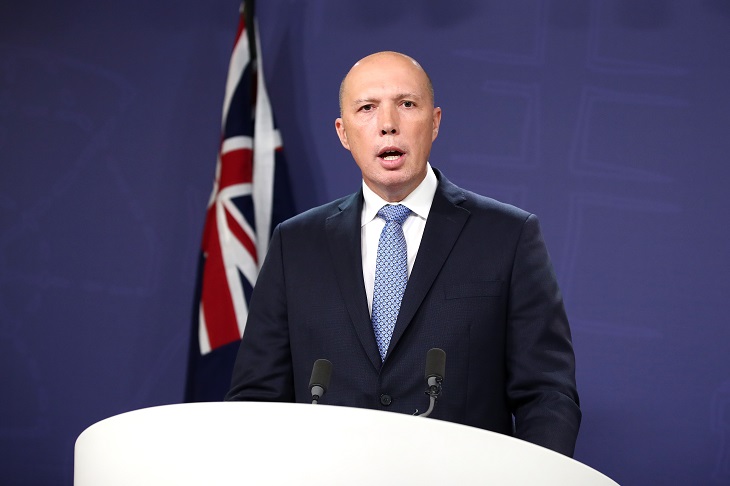

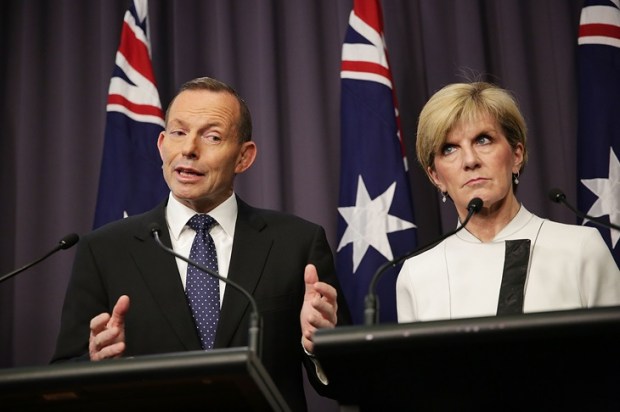

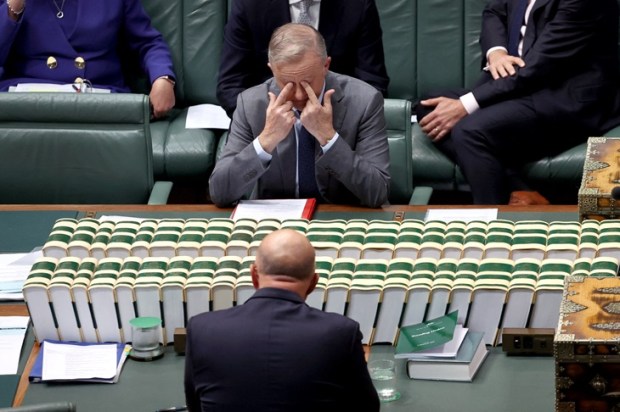
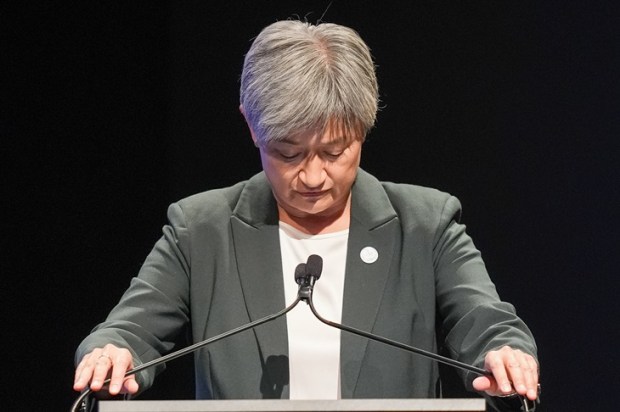
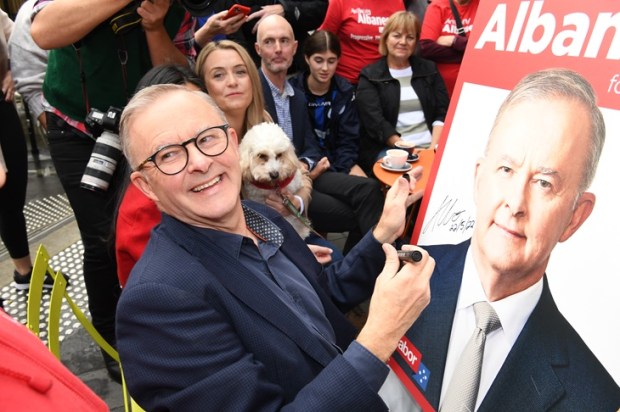


















Comments
Don't miss out
Join the conversation with other Spectator Australia readers. Subscribe to leave a comment.
SUBSCRIBEAlready a subscriber? Log in